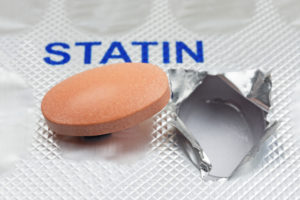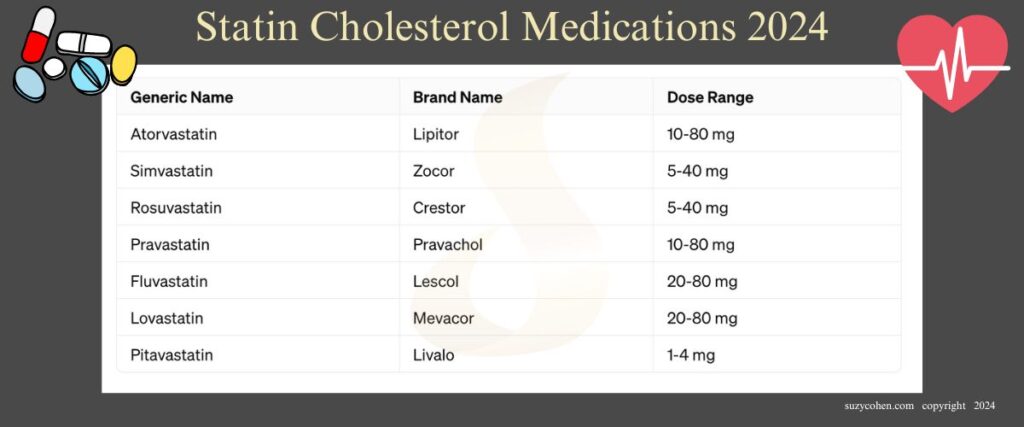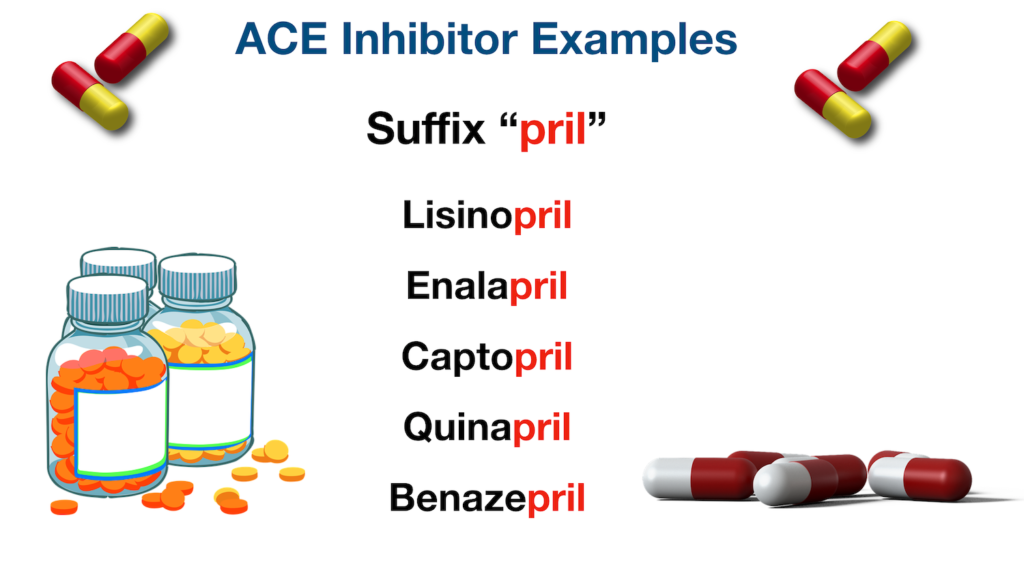What's On This Page?
ToggleOnce upon a time, in a quiet suburban neighborhood, there lived a woman named Emily. She had always been a sound sleeper until one day, her peaceful nights were disrupted by a series of vivid and distressing nightmares. Emily would wake up in a cold sweat, her heart racing, unable to shake off the dreadful images that haunted her sleep. She would rise early so she wouldn’t have to go back to sleep where the nightmare might continue.
As the weeks turned into months, Emily’s sleepless torment began to take a toll on her daily life. She struggled to concentrate at work, her mood grew more impatient and at times irritable, and the bags under her eyes seemed to deepen with each passing day. Desperate for a solution, she turned to her family doctor who highlighted the amount of stress she’s been under now that her husband lost his job, her son left for college and she had some new health issues to deal with.
Her doctor may have listened attentively to Emily’s nightmare concerns, but chalked them up to stressors in her life that would naturally cause her to lose sleep, and develop bad dreams.
Emily came across an article I wrote years ago, that is still posted on my website. If you’d like to read it to, CLICK HERE.
She immediately considered the possibility that her new nightmares might be a side effect of a medication that she began taking, that she saw listed in my blog. How do I know this? Because she emailed me to thank me for saving her sleep! Today, I thought I would discuss how medications impact our dreams. It’s something most people don’t realize could be occurring, but very much a possibility.

As for Emily, the culprit was atorvastatin. While known for its effectiveness in managing cholesterol production from the liver, there are potential side effects to mood, one of which is nightmares. If you’d like to read the confirmation for this, there’s an article entitled “Atorvastatin may cause nightmares” and it’s posted on the website of the National Library of Medicine.
Depression is another possibility that occurs if you take statin drugs, due to the depletion of thyroid cofactors, ubiquinol and vitamin D, all of which could lead to disturbed dreams and insomnia.
The point is, Emily now enjoys peaceful nights of sleep, with her nightmares entirely gone. Her doctor has temporarily discontinued her medication while she makes lifestyle changes that include routine exercise, and the adoption of a low-carb, high-protein diet, as well as some supplements for lipid management. I love success stories! I live for them. I continue to write medical articles week after week, in the hopes that I change someone’s life for the better.
Thyroid Disease and Sleep Patterns
While the connection of thyroid disease and bad dreams is not direct, there are several ways that this condition can impact how you sleep. For one, hypothyroidism is sometimes associated with sleep apnea which will disturb sleep. Another reason for poor, unrefreshing sleep is that low levels of thyroid hormone can lead to poor mental health, depression and anxiety, which again can impact sleep negatively.
Also, the use of medications can play a role. Taking levothyroxine at night, or taking too high of a dose of any thyroid medication can lead to vivid dreams, or nightmares. It’s just a consideration for those of you with this condition.
I talk about Levothyroxine in this article which may be of interest to you, Soy Foods And Thyroid Disease: 7 Ways To Navigate The Impact.
Common Scenarios in Nightmares
In a moment, I will present a big-picture overview of the top 10 drug categories that cause sleep disturbances and nightmares. And after that down lower, you will see the top 10 herbal supplements that also cause problems. Before I get to the list of common nightmare-inducing things, I’d like to share the most common types of dream/nightmares in case you are interested.
The theme of the dream varies among people, but there are some recurring themes that are common which I will now share:
Falling: Dreams of falling, often from great heights, can evoke a feeling of powerlessness and fear. On occasion, I have this dream myself and I’m not even afraid of heights. It’s usually my car that rolls backward off a cliff!!!! It doesn’t help that I live in Colorado and often find myself on cliffy, ledgy roads (which I do try to avoid due to the dream).
Being Chased: Many people experience nightmares where they are pursued or chased by an unseen or known threat, which can symbolize avoidance or stress.

Being Attacked or Threatened: Nightmares involving physical harm, violence, or aggression can be distressing and often reflect feelings of vulnerability or insecurity. I’ve had this one a few times in my life too!
Losing Teeth: Dreams of losing teeth or teeth crumbling can be unsettling and may symbolize concerns about appearance, self-esteem, or communication.
Being Trapped or Unable to Move: Nightmares where individuals are immobilized or trapped can be linked to feelings of helplessness or being stuck in a challenging situation.
Public Embarrassment: Dreams of public humiliation or embarrassment can be particularly distressing and may relate to social anxieties.
Natural Disasters: Nightmares featuring natural disasters like earthquakes, floods, or tornadoes often represent fear of uncontrollable events or situations.
Being Late or Missing Something Important: Dreams of being late for an important event, like a job interview or exam, can reflect concerns about time management or fear of failure.
Lost or Abandoned: Nightmares about getting lost, abandoned, or separated from loved ones can highlight feelings of isolation or fear of rejection. When I was a kid, I used to have this dream every so often.

Unwanted Creatures or Monsters: Dreams featuring monsters, supernatural beings, or strange creatures often symbolize inner fears or unresolved psychological issues.
Death or Dying: Nightmares involving death, either one’s own or that of a loved one, can be distressing and may represent fear of mortality or loss.
Missing a Transportation Mode: Nightmares about missing a train, bus, or flight can relate to concerns about missing opportunities or feeling left behind.
This is not an exhaustive list, and while each dream has some degree of emotional impact, it doesn’t mean you have to necessarily even do anything. Bad dreams happen. It’s part of life. But chronic or frequent nightmares is not normal, and NOT part of life. It could be anything including personal experiences, stressors, and subconscious thoughts which a therapist can help you with. My goal is not to enter that arena, it’s more to show you that drugs can induce bad dreams too! It’s not always something going on in your life, it could be as simple as something you’re taking, and that makes it an easy fix!
Top 10 Nightmare Triggers that are Medications
1. Antidepressants: Certain antidepressant medications, especially selective serotonin reuptake inhibitors (SSRIs), may lead to vivid dreams and nightmares in some individuals.
2. Antipsychotics: Some antipsychotic drugs have been known to cause dream-related side effects, including nightmares.
3. Beta-Blockers: These medications, commonly used to treat high blood pressure and heart conditions, may occasionally lead to unusual dreams and nightmares.
4. Cholesterol-Lowering Drugs (Statins): Statin medications have well-documented evidence to cause sleep disturbances (including vivid dreams and possibly nightmares in some users), but it doesn’t happen to everyone. I have a graphic for you that lists these medications in case you’re uncertain if you take one.

5. ADHD Medications: Stimulant medications used to treat attention deficit hyperactivity disorder (ADHD) can sometimes be associated with vivid dreams or nightmares.
6 LDN (Low Dose Naltrexone): Used for pain management and autoimmunity, this prescription drug can cause an increase in weird or vivid dreaming. It is a natural consequence of the medication reviving receptors in the brain as well as increased dopamine and serotonin.
7. Corticosteroids: High-dose or long-term use of corticosteroid medications may lead to sleep disturbances, including nightmares. If you’re inhaling corticosteroids due to asthma concerns, the drug is inhaled at a lower dose compared to oral prescriptions but these drugs are still nightmare triggers. You may be interested in reading my other article, Breath Easy: Understanding Prescribed Asthma Medications.
8. Antibiotics (Fluoroquinolones): Certain antibiotics, particularly fluoroquinolones, have been reported to cause unusual or vivid dreams in some individuals.
9. Blood Pressure Medications (ACE Inhibitors): ACE inhibitors may occasionally lead to unusual or disturbing dreams.

10. Anti-malaria Drugs: Some anti-malaria medications have been associated with nightmares as a possible side effect.
NOTE: Do not suddenly discontinue medications if you fear they are causing your nightmare. Some of these drugs cannot be discontinued without a proper taper or it can produce a seizure, so ALWAYS speak to your physician about how to stop a medication and/or how to switch to a therapeutic equivalent.
Top 10 Nightmare Triggers that are Herbal Remedies or Vitamins
1. Melatonin: Melatonin supplements, used to regulate sleep patterns, can sometimes lead to vivid dreams or nightmares, although not everyone experiences this effect. This is the #1 natural offender when it comes to inducing bad dreams. I wrote an article recently on 10 Popular Plants and Foods that Have Melatonin.
2. Valerian Root: Valerian, an herbal supplement used for its calming effects, has been reported to cause unusual or vivid dreams in some individuals.
3. Vitamin B6 (Pyridoxine): High doses of vitamin B6 supplements have been associated with vivid dreams and nightmares in some cases.
4. St. John’s Wort: This herbal remedy, used for mild depression and mood disorders, may occasionally lead to changes in dream patterns, including vivid dreams.
5. Ginkgo Biloba: Ginkgo biloba supplements have been linked to changes in dream patterns, although this effect is not common.
6. Kava: Kava supplements, used for anxiety and stress relief, have been reported to cause unusual or vivid dreams in some individuals.
7. The amino acid 5-HTP (5-Hydroxytryptophan): 5-HTP, a serotonin precursor often used for mood enhancement, may lead to changes in dream content, including vivid or strange dreams.
8. Chamomile: While chamomile is known for its calming properties, it has occasionally been associated with changes in dream patterns, including vivid dreams.
9. Ginseng: Ginseng supplements may cause alterations in dream content in some individuals.
10. Ephedra: Ephedra-containing supplements have been linked to changes in sleep patterns, including unusual or vivid dreams. This was banned in the U.S. in 2004, however, some older folks might still have older cough/cold formulas in their medicine cabinet so I feel the need to list it. (Throw it out!)
Everyone has a different kind of experience or nightmare, or maybe it’s just a vivid dream that isn’t scary. If you suspect that a dietary supplement or vitamin is causing disturbing dreams, please consult your practitioner(s) for guidance and potential alternatives.
What Can You Do?
I understand that you may not want to (or be able to) stop a medication so I have some ideas for you to mitigate this problem. I’m not sure if any of these will help with your specific medication, but you can certainly give it a try:
Adjust Medication Timing: I’m listing this first because sometimes it’s a matter of timing. Maybe if you take your medication in the morning instead of at night, the drug levels will be at a trough, and not interfere with your sleep so much. This won’t work for anything that’s sedative. But you should at least explore the possibility of modifying the timing of medication administration with your doctor in an effort to mitigate dream-related side effects. As an example, if you take LDN you might try taking it in the morning, versus right before bed which is when it’s usually timed. There’s more about LDN in my other ARTICLE.
Consider Dosage Reduction: In select cases, depending on the medication, simply reducing the dose will help, while still preserving therapeutic efficacy. I always say “start low and go slow” with meds, and this is just one more reason why.
Combination Therapy: Discuss with your healthcare provider the potential benefits of augmenting your current drug with another agent (preferably natural) so that you can counter the bad dreams. An example of what your doctor may want to do is to cut the dose of the statin in half, and bring in red yeast rice and essential fatty acids.
You can discuss this privately of course, because the natural regimen differes for each person. By the way, did you know that statins have the potential to suddenly cause hyperglycemia/diabetes when you’ve had normal blood sugars your whole life prior to beginning the medicine? LEARN MORE HERE.
Adhere to Sleep Hygiene Practices: This won’t stop a drug-induced dream, but having good sleep hygiene is important for all of us. Keep a consistent sleep schedule, optimizing your environment (ie room temperature, lighting, pillows, blankets, etc). Clear out EMF-producing devices. Don’t put yourself to bed with your iFriend 😉
Maintain a Sleep Diary: Document sleep patterns, including the frequency and content of nightmares, in a sleep diary. This record serves as a valuable tool for healthcare provider consultations and monitoring changes over time.
Consult a Sleep Specialist: In cases where nightmares significantly impair sleep and overall well-being, consulting a sleep specialist or psychiatrist with expertise in sleep disturbances is advisable for specialized evaluation and intervention.
So many people are afraid to question their doctor, but your doctor wants to help you. He/she wants a good outcome. They are trying to do good things for you and as such, you should feel safe fostering an open and very candid dialogue with your healthcare provider. You need to share any new symptoms after they prescribe a drug for you because that’s how they can fix it, or change your protocol.
It’s a collaborative effort between you and your practitioner. I only emphasize this because I recently heard from an individual who told me she was scared to tell her doctor anything negative about the new drug regimen she was taking because she liked her doctor too much. She was not feeling well on it with all kinds of side effects, but she still maintained this stance about her physician, “I’d rather not cause any weirdness between us by questioning her prescription” and “She’s been so kind to me, I can’t say anything.”
So I’m telling you it’s imperative to SAY SOMETHING because at the end of the day, your physician truly wants to help you, and they can’t read your mind. If something isn’t working, you should tell them. It doesn’t hurt their feelings because they know full well that there is a risk-benefit profile for every drug.
Pharmacists know this too but we can’t alter a drug regimen, nor we can’t prescribe for you. If a medication is causing you to stay up all night, or have horrific dreams, it’s an easy thing to fix. Your primary objective is to strike an equilibrium between effect management of your health condition, and minimization of intolerable side effects.
Summary
Nightmares are vivid, distressing dreams that evoke intense emotions like fear, anxiety, or dread during sleep. They are a common occurrence, with about 10% of us experiencing nightmares at least once a month! Oftentimes, we don’t even remember our dreams, but that’s pretty normal.
Nightmares can feature various unsettling themes, such as falling or being chased often reflecting typical fears and anxieties in life. While occasional nightmares are normal, frequent or severe nightmares will disrupt sleep and daily life and badly impact your mood, heart health, and ability to think clearly. Understanding their causes and potential solutions is essential for achieving restful sleep and better mental well-being and one cause is your medication. Another cause is your herbal supplement especially natural sleep aids which contain kava kava, melatonin or valerian root.
Before you see an expensive sleep specialist or get a medication for sleep, ask your doctor if something you already take is causing it! Do a trial for a month without the medication and see if your sleep improves. Always ask your doctor for guidance about how to wean a medication because suddenly stopping some of those drugs can be harmful to your health. Many (not all) have to be carefully tapered.

Suzy Cohen, has been a licensed pharmacist for over 30 years and believes the best approach to chronic illness is a combination of natural medicine and conventional. She founded her own dietary supplement company specializing in custom-formulas, some of which have patents. With a special focus on functional medicine, thyroid health and drug nutrient depletion, Suzy is the author of several related books including Thyroid Healthy, Drug Muggers, Diabetes Without Drugs, and a nationally syndicated column.



